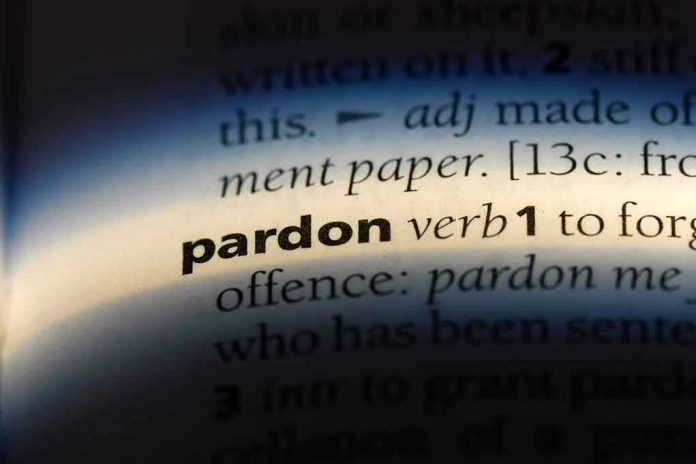
President Trump’s sweeping pardons of Giuliani, Meadows, Powell, and dozens of allies mark a seismic victory for those demanding accountability after years of political witch hunts—while critics call it an unprecedented challenge to the rule of law.
Story Snapshot
- President Trump issued “full, complete and unconditional” pardons to 77 individuals, including Giuliani, Meadows, and Powell, involved in 2020 election challenges.
- The pardons protect recipients from federal prosecution for actions related to efforts to contest the 2020 election results.
- Trump excluded himself from the pardons, framing the act as “national reconciliation” for what he described as a grave injustice.
- The move has sparked fierce debate over presidential power, accountability, and the future of the MAGA movement.
Trump’s Unprecedented Pardons: Shielding Allies and Sparking Debate
President Donald Trump announced “full, complete and unconditional” pardons for 77 individuals—among them Rudy Giuliani, Mark Meadows, and Sidney Powell—who faced legal jeopardy for their roles in challenging the 2020 election results. The sweeping presidential proclamation covers all federal conduct related to efforts to contest or overturn the election, including the use of alternate electors and public claims of election fraud. Unlike previous controversial pardons, Trump’s action is historic in both scale and intent, as it directly addresses a broad political movement targeted by years of investigations and prosecutions.
Framing his decision as an act of “national reconciliation,” Trump declared that the prosecutions of his allies constituted a “grave national injustice” and invoked the slogan “No MAGA left behind.” Supporters argue that these pardons are essential to correcting what they view as politically motivated attacks on those defending election integrity and conservative values. In a clear signal to the base, Trump emphasized that he did not pardon himself, underscoring both his confidence in his own legal standing and his commitment to protecting those who stood with him during one of the most contentious periods in American political history.
Legal and Political Fallout: Reactions Across the Spectrum
The immediate effect of the pardons is to shield recipients from federal prosecution for any conduct related to the 2020 election challenges. This abrupt halt to ongoing federal cases has upended the work of prosecutors and brought legal proceedings against high-profile MAGA figures to a standstill. Critics, including some legal scholars and opposition politicians, warn that this broad exercise of presidential pardon power risks eroding public trust in the rule of law and could set a dangerous precedent for future administrations. Conversely, supporters see it as a necessary correction after years of what they view as left-wing overreach, weaponized investigations, and constitutional abuses that threatened conservative voices and values.
While the move is not without precedent—past presidents have issued controversial pardons—none have matched the blanket scope and overt political intent seen here. Trump’s decision is seen by many conservatives as a bold stand against a justice system perceived to have been used to target political adversaries, restoring a measure of protection for those who acted in what they believed was the nation’s best interest. The MAGA base has responded with renewed enthusiasm, viewing the pardons as a long-overdue act of loyalty and vindication.
Implications for the Conservative Movement and Rule of Law
These pardons have far-reaching implications for the conservative movement and the broader American legal landscape. In the short term, they grant freedom and relief to dozens of Trump allies and their families, removing the threat of costly legal battles and potential incarceration. Over the long term, however, they raise critical questions about the limits of presidential authority and the potential normalization of politically motivated pardons. Legal experts caution that this could create a new standard where presidents protect loyalists from prosecution, further deepening partisan divides and fueling public cynicism about justice and accountability.
Despite the controversy, Trump’s core supporters see the pardons as a turning point—a decisive blow against the left’s campaign to silence and punish those who refuse to surrender conservative principles. The action serves as a rallying cry for defenders of the Constitution, individual liberty, and the right to challenge what they see as corrupt or flawed electoral processes. As debates continue, the legacy of these pardons will shape American politics and the conservative movement for years to come.
Sources:
Trump grants pardons to Giuliani and other allies linked to 2020 election efforts




